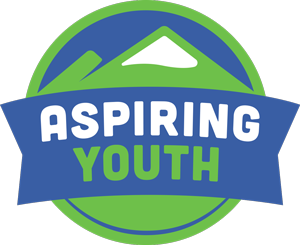 Boredom can be a good thing, and summer is a great time for it. This may seem counter-intuitive advice coming from a social skills coach for a program with a thriving (and awesome) summer camp program, but your kids need some boredom and unstructured time. Structured activities are beneficial, especially if you have concerns about your kids spending too much time with video games, phones and tablets (i.e., “screens”)–but don’t go overboard!
Boredom can be a good thing, and summer is a great time for it. This may seem counter-intuitive advice coming from a social skills coach for a program with a thriving (and awesome) summer camp program, but your kids need some boredom and unstructured time. Structured activities are beneficial, especially if you have concerns about your kids spending too much time with video games, phones and tablets (i.e., “screens”)–but don’t go overboard!
Why boredom?
One important developmental task milestone for teens is learning to create their own sense of autonomy. As they grow, children need to make the decisions of how to responsibly fill their free time. As parents, it’s easy to feel pressure to fill their schedules with activities. It’s important though to recognize that boredom is also a gift that allows them to fill their own “schedules”. Though they may be resistant at first, self-discovery and creativity are often born of boredom.
“Brad” and the Scotch tape roll
In one recent Aspiring Youth social skills group, teenaged “Brad” fiddled for quite some time with the empty, plastic center of a Scotch tape roll. I watched him absentmindedly fiddle with it as he described proudly how he entertained himself with it all day.
Inspiration struck very suddenly as he flicked it across the table. I took five coins from my pocket and placed them in a line on the table. Each coin marked a different zone. I challenged him to flick the plastic roll in such a way as to get it as close to the opposite table edge as he could while not going over the edge, with double points awarded if he flicked it with enough backspin to roll back to him. The closer he could get it to the opposite edge, the more points he received. The other teens trickled in and one by one took turns with this game. Everyone ended up playing an hour-long tournament which I refereed. The guys enjoyed it so much that the following week several asked if we could do it again.
Boredom as a skill
While the guys were pretty impressed that we came up with that fun game so quickly, it became a teaching point about how creativity can spring from boredom, and how being bored is actually a skill one has to practice. We have to generate our own interests. Not coincidentally, I love tabletop games because they are both fun and social. I would never have tried them if my parents hadn’t limited my video game exposure and allowed me plenty of unstructured time in which to fill.
Here are a few ways to facilitate productive boredom:
-
Limit your kids’ recreational screen time to no more than two hours every day (as recommended by the American Academy of Pediatrics). This includes use of smartphones for purposes other than directly communicating via text or phone.
-
Schedule some structured or semi-structured activities (Aspiring Youth’s summer camps are a great example of a mixture of structured and unstructured time).
-
In order to create more autonomy with your adolescent, discuss the structured activities that they would like to do.
-
 If they’re used to an abundance of structured activities and/or screen time, be prepared for push back!
If they’re used to an abundance of structured activities and/or screen time, be prepared for push back! -
If and when they say, “I’m bored!” work with them to come up with some activities–but don’t lead too much.
-
Encourage them to explore new activities that they have never tried.
Aside from the fact that this can help them develop their autonomy and creativity, giving them unstructured time can also make it easier on parents since you don’t have to schedule every minute for them.
In any case, have fun! Who knows? Maybe your teen will come up with their own fun games in the process.
Dr. Boccamazzo is a doctor of clinical psychology and social skills coach with Aspiring Youth. In addition, he is the clinical director of TakeThis.org, a national nonprofit focused on mental health and the gamer community, runs a private psychology practice in Bellevue offering individual therapy and psychological assessment to adolescents and adults, and provides parent and clinician trainings on technology in psychology. Much of his work focuses on high functioning autism, problematic technology usage, social anxiety, trauma and games. In his spare time, he enjoys acting, cooking, board games and video games.



Leave A Comment
You must be logged in to post a comment.